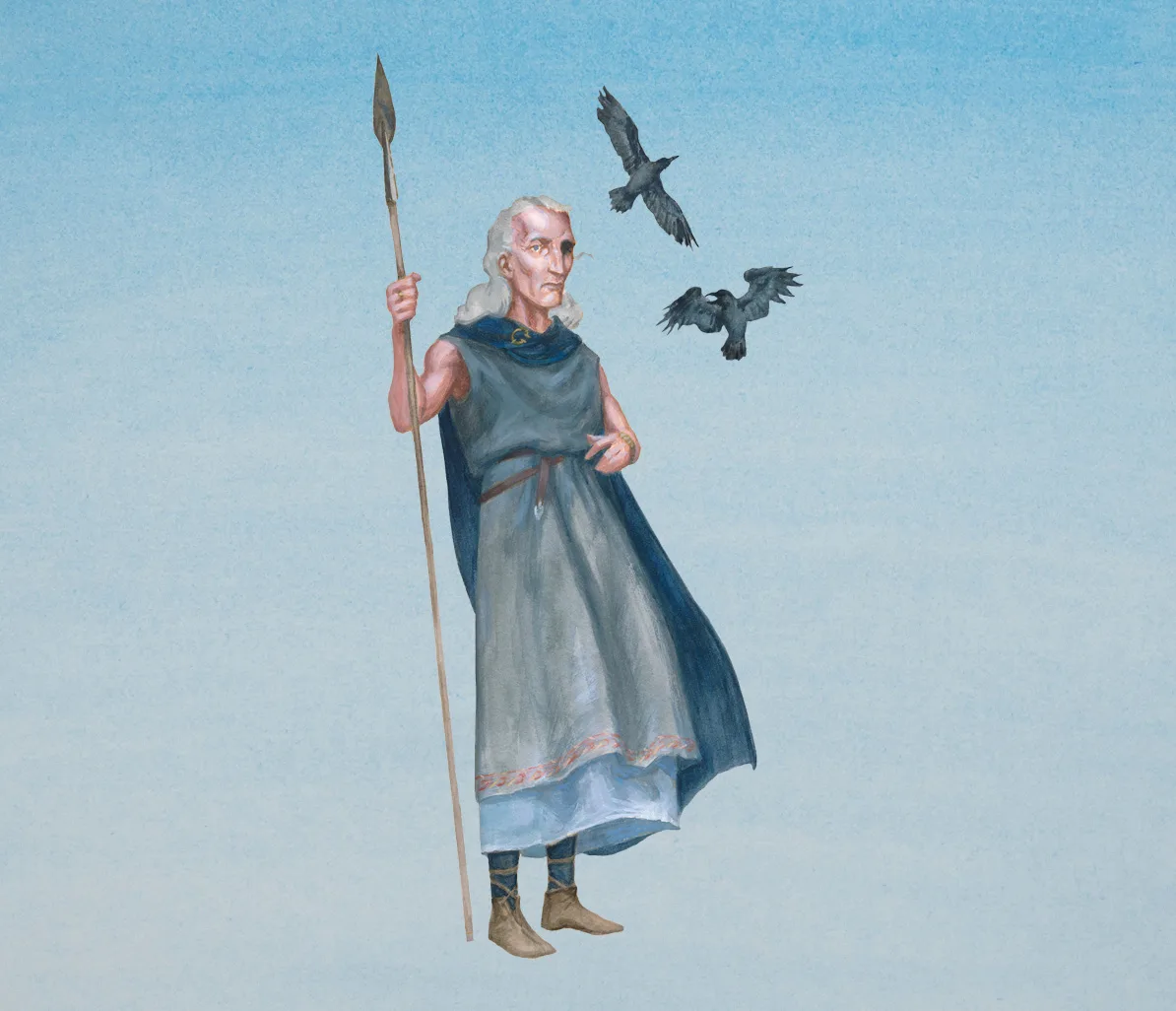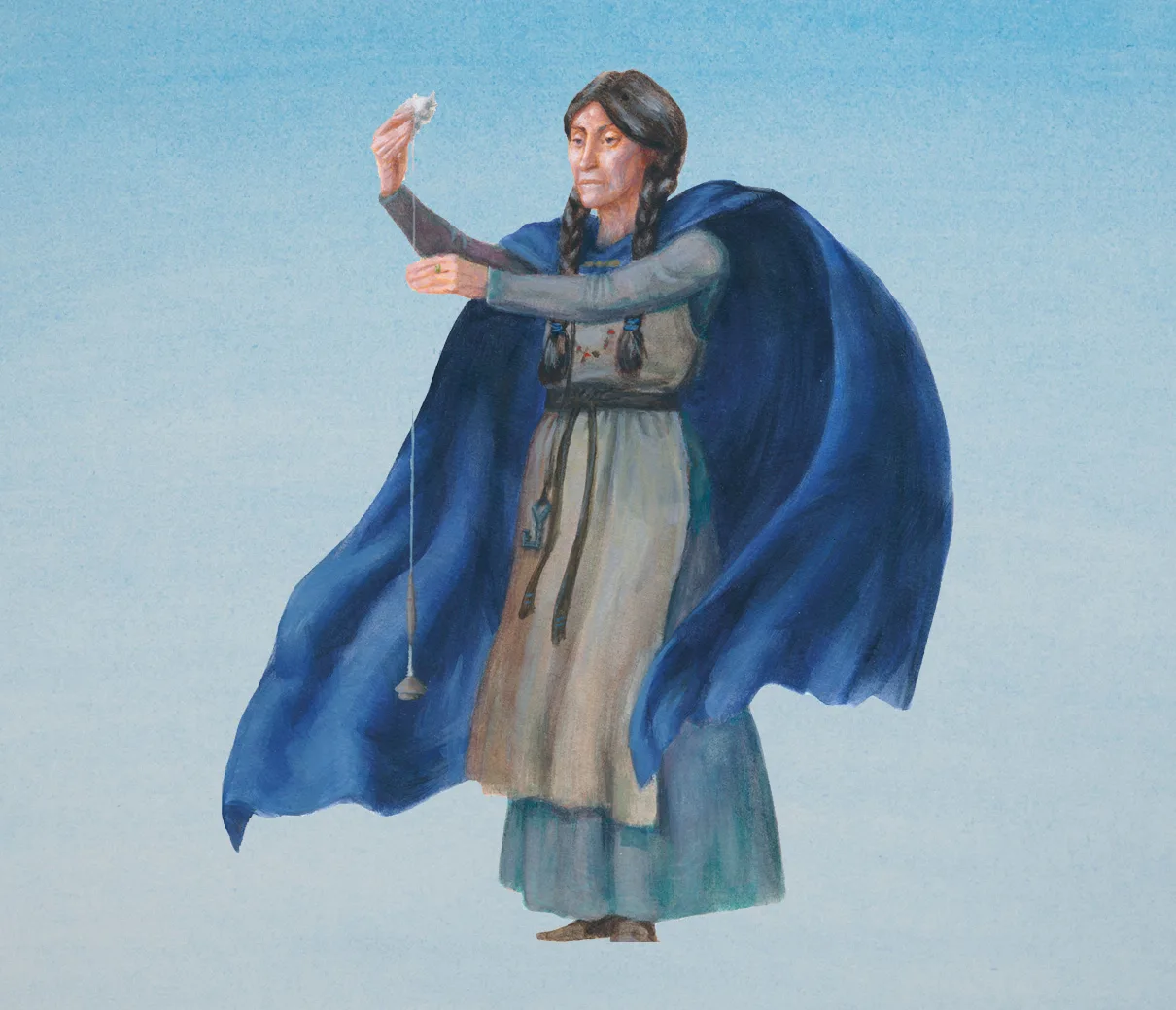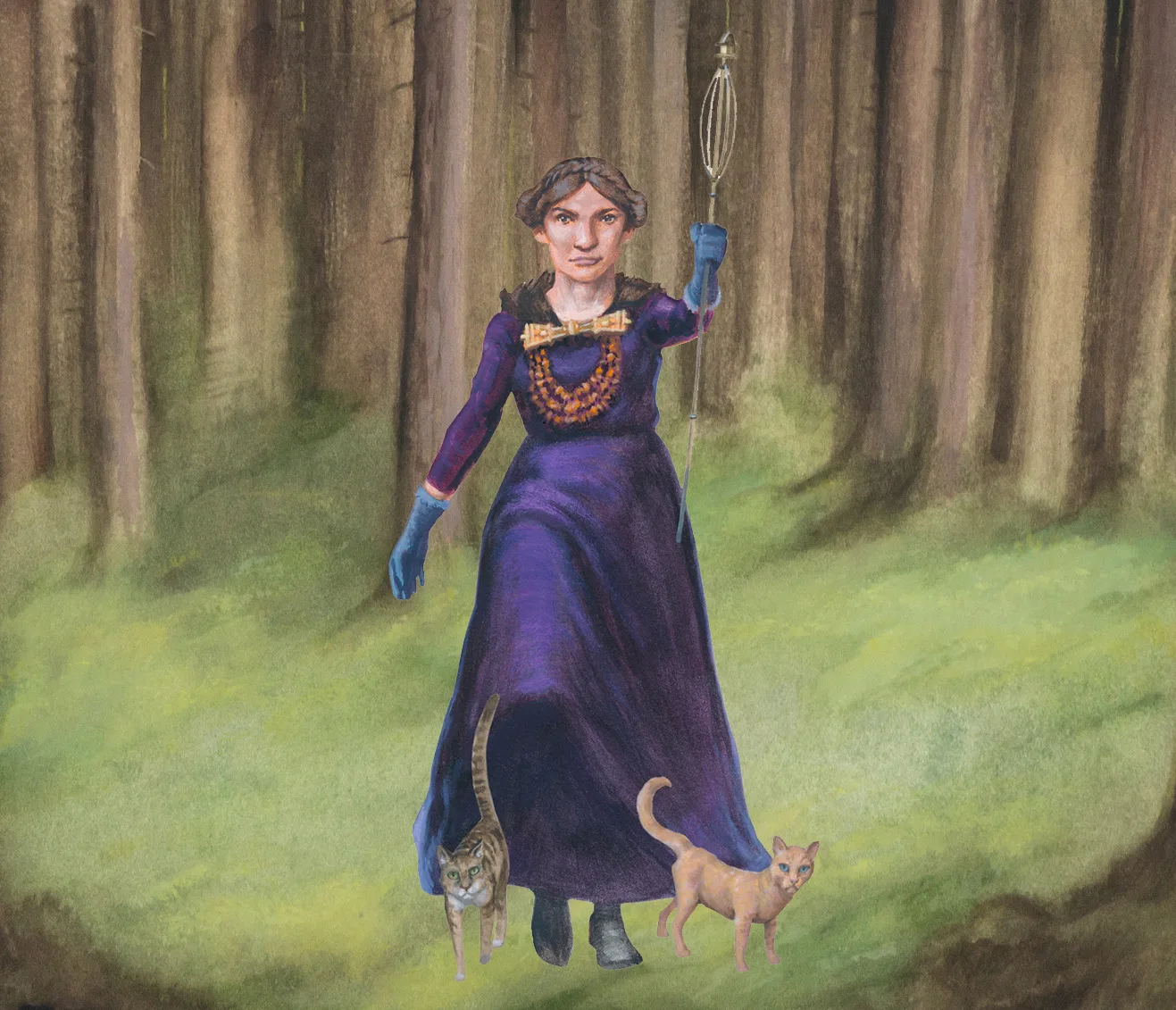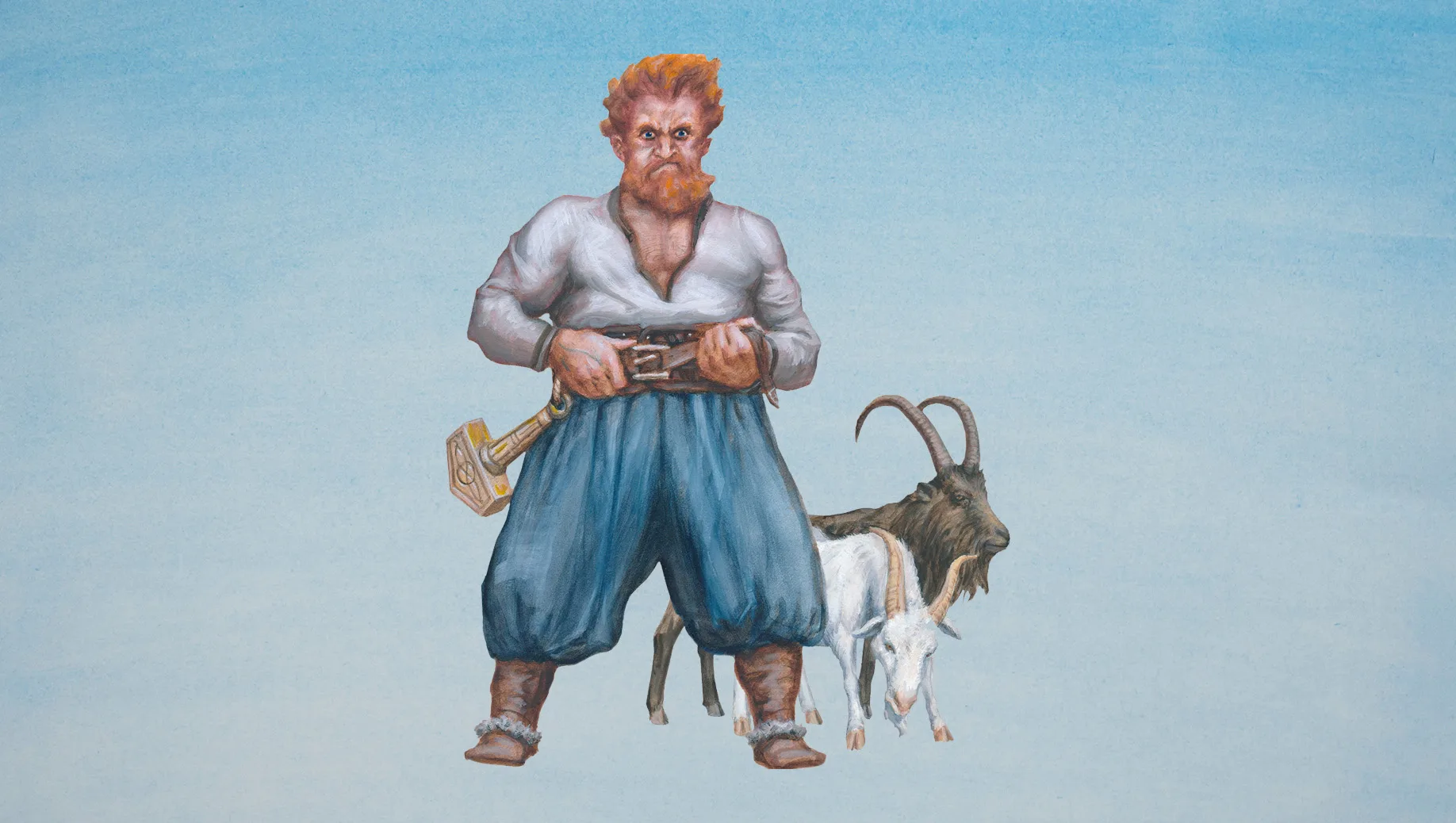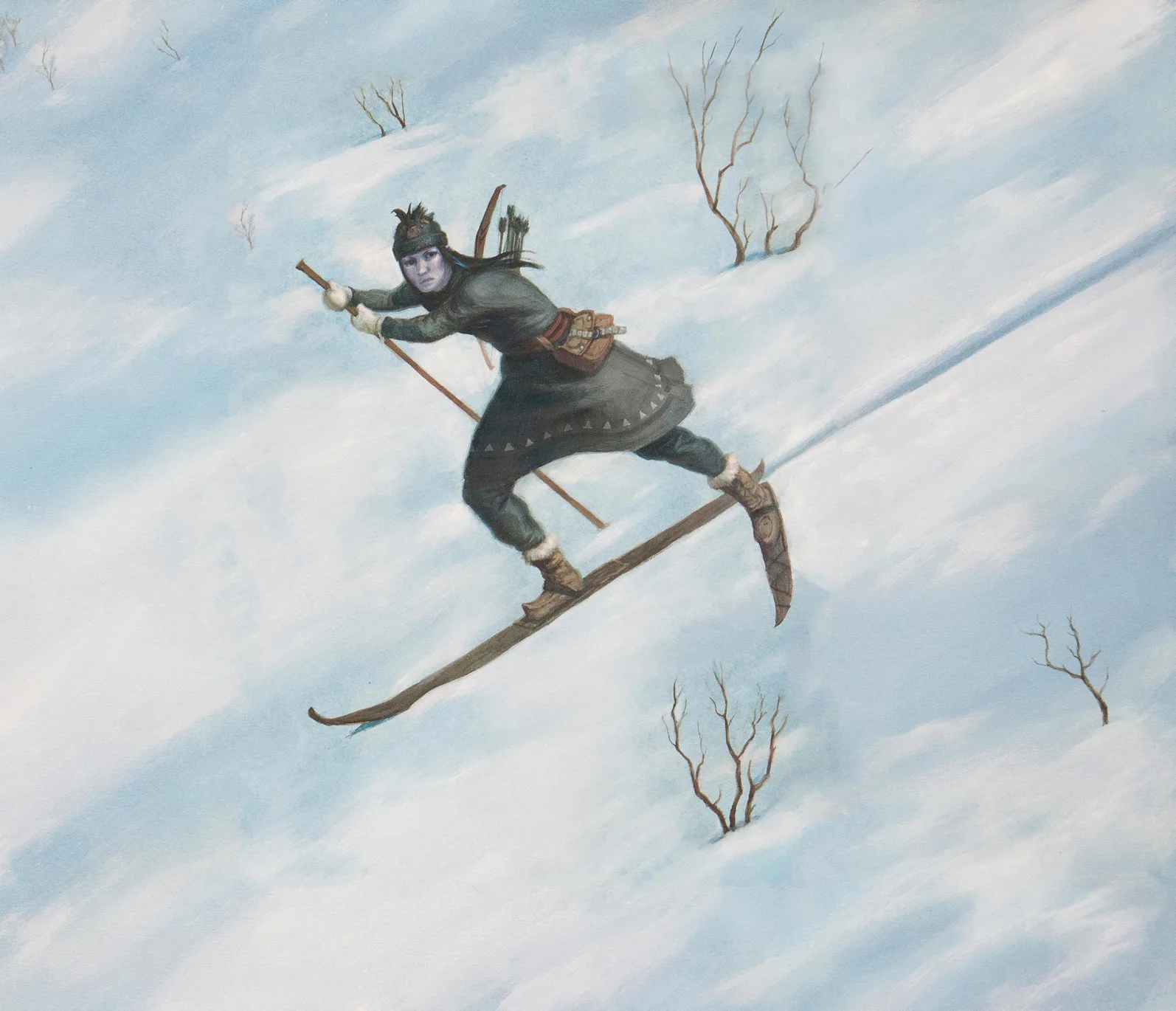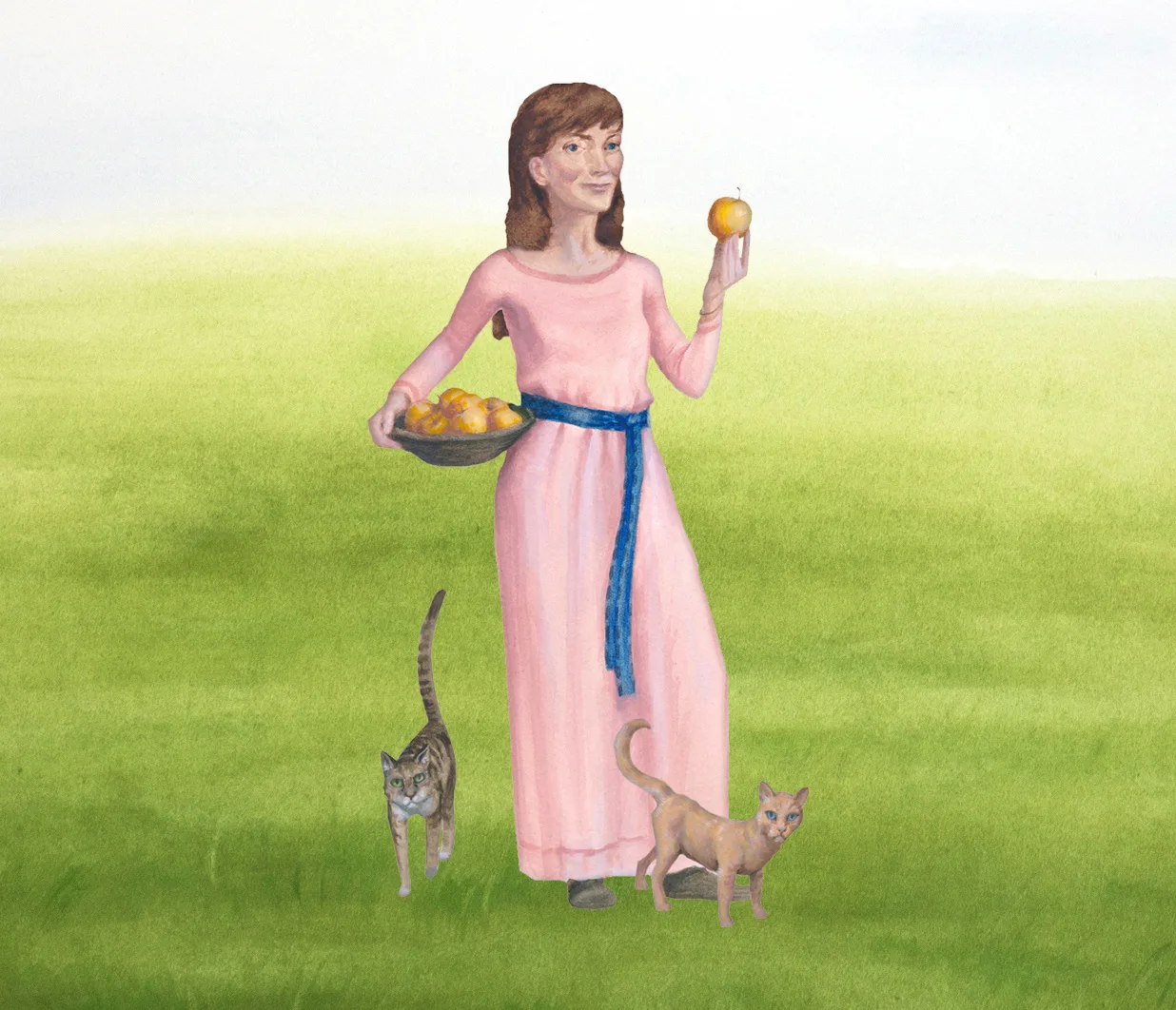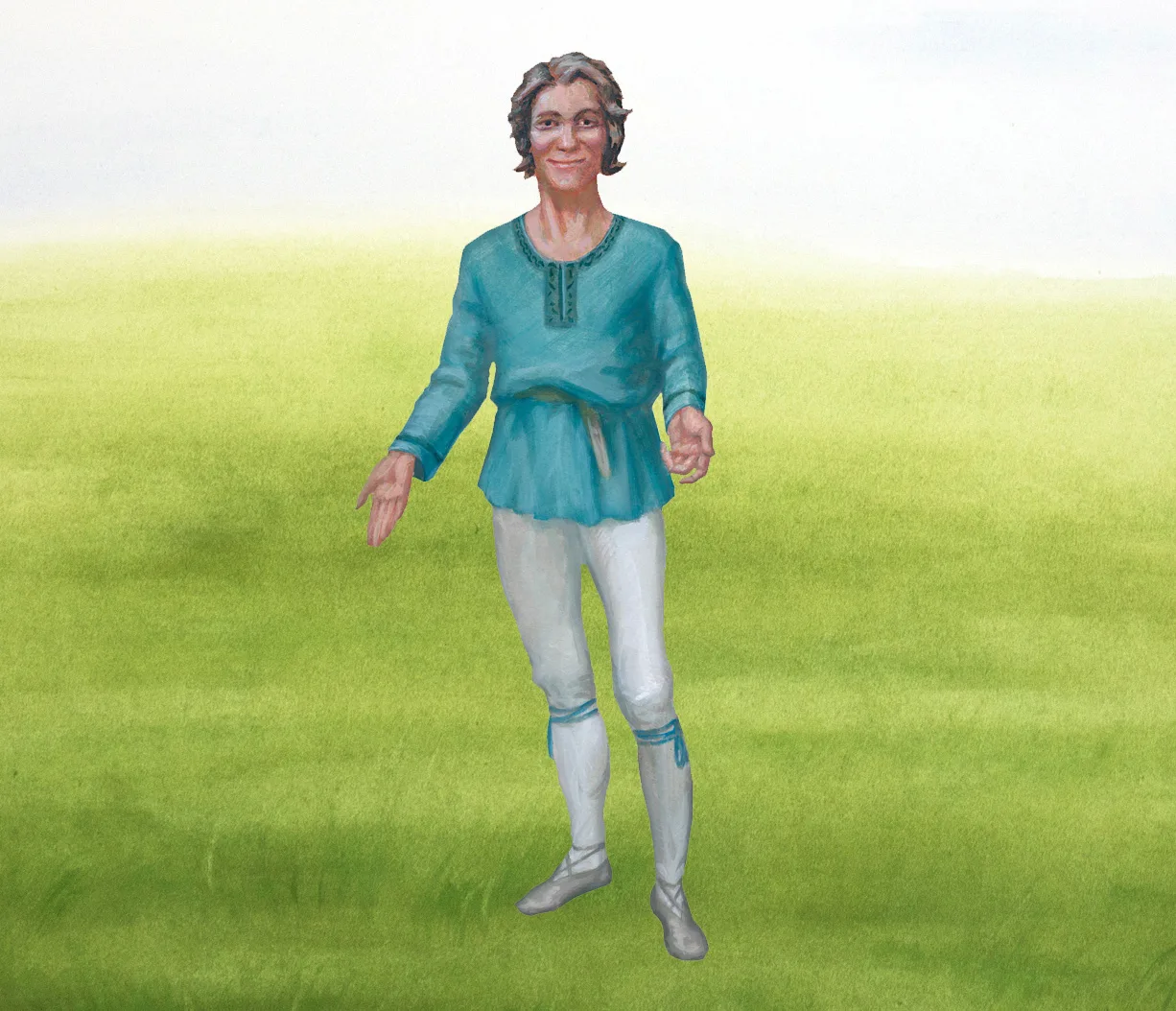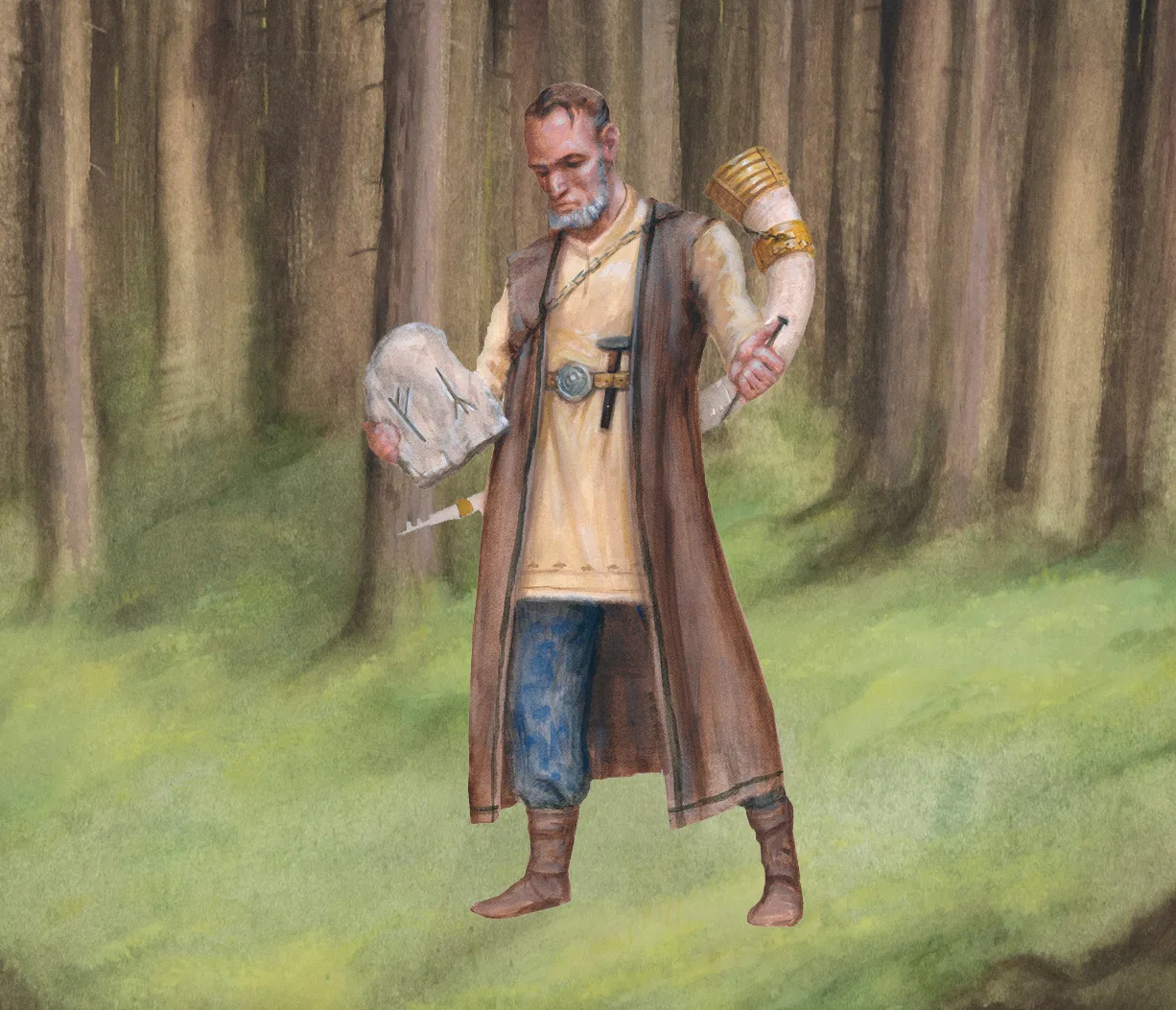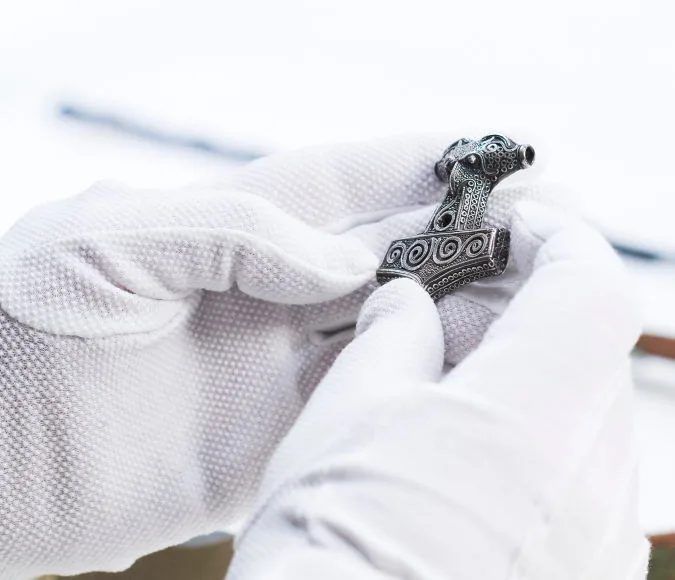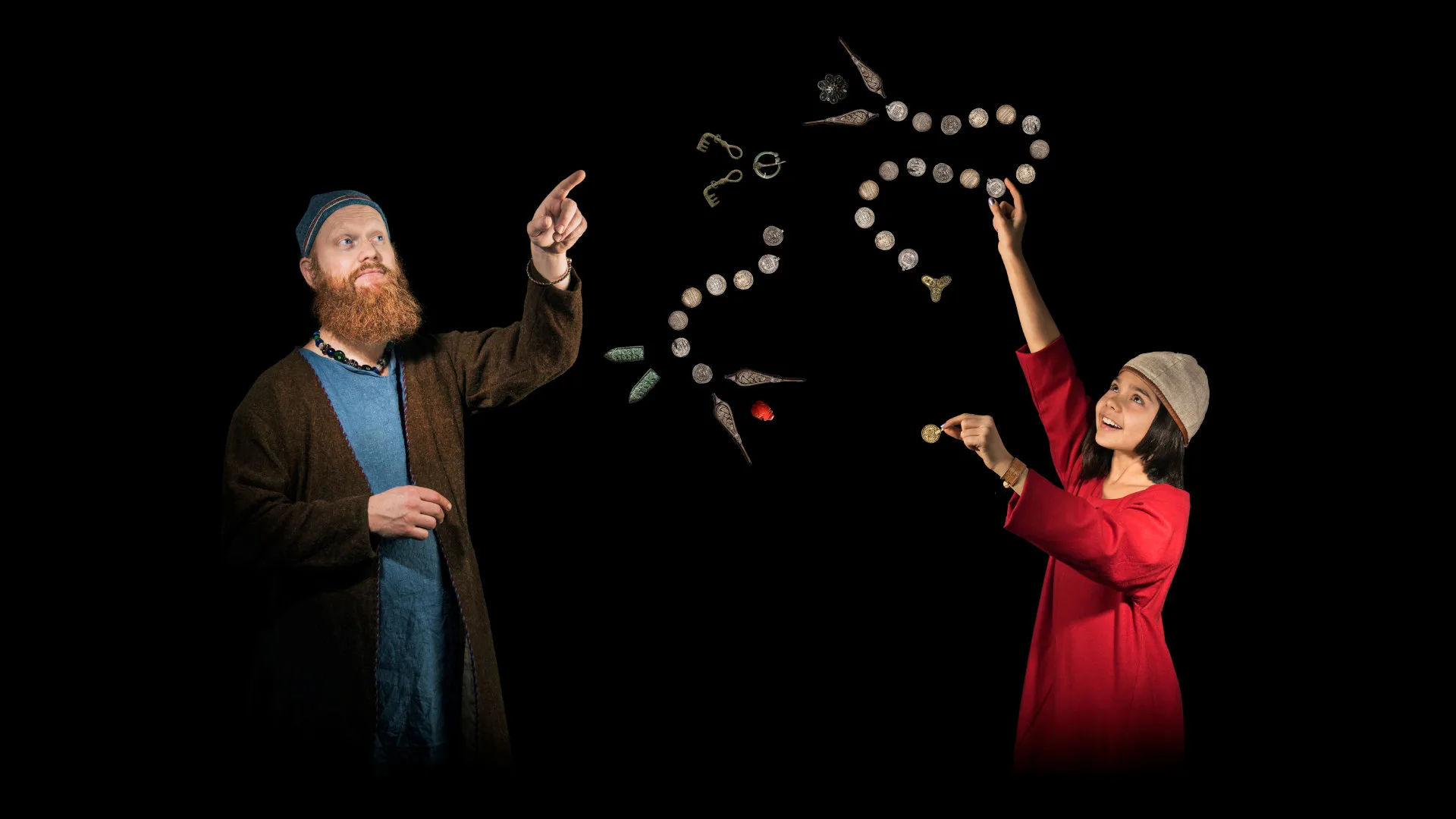Frigg – mistress of Asgard
Iron Age
500 BC – AD 1100
Viking Age
AD 800 – AD 1100
Middle Ages
AD 1050 – AD 1520
Frigg belongs to the Æsir and is the highest-ranking female deity in the Norse pantheon. Her home is called Fensalir (“the Marsh Halls”), a palace in Asgard. Frigg is best known for her role as the guardian of marriage, but also as the mother of Balder, the fairest and most beloved of the gods.
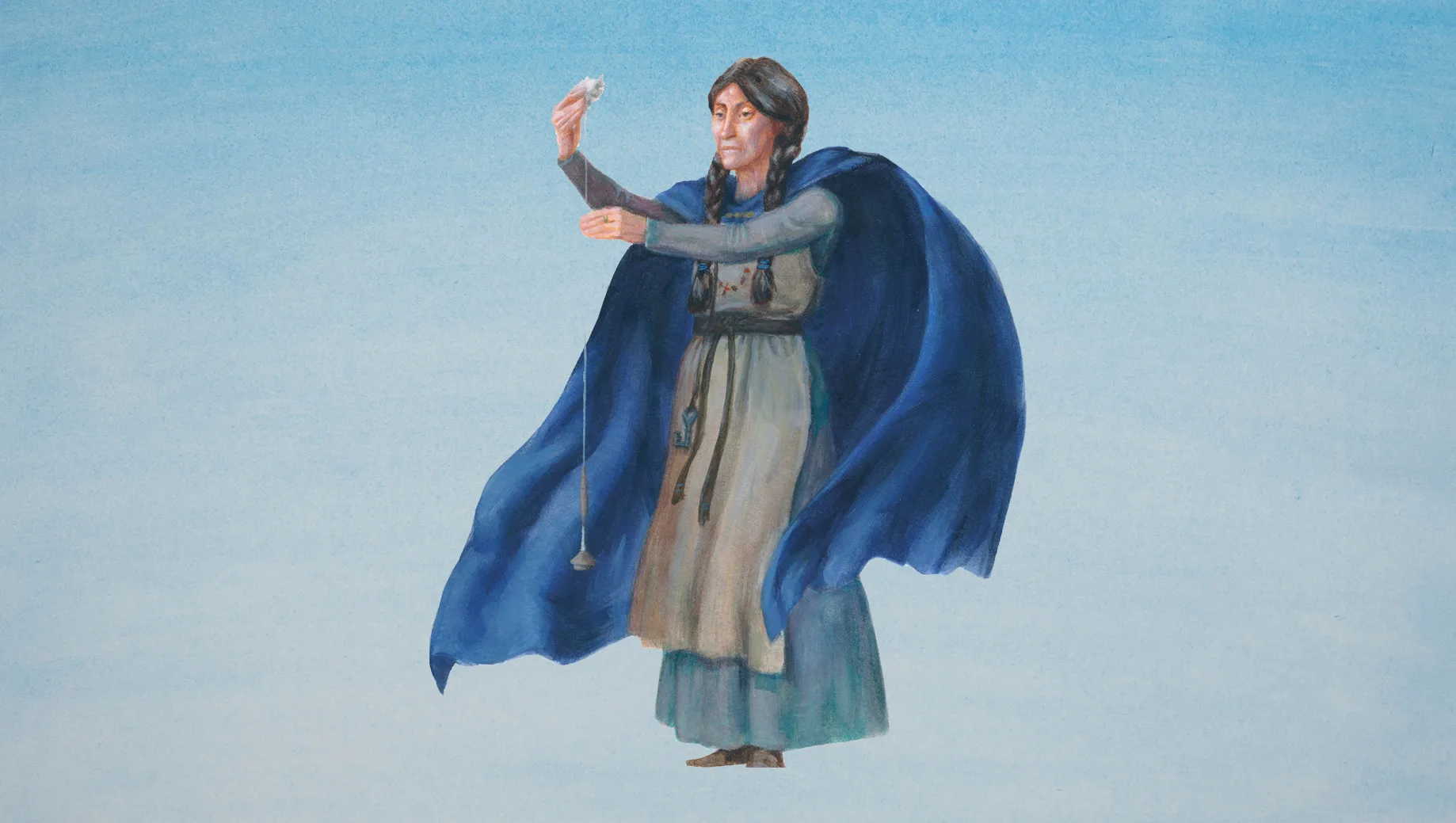
At times, Frigg wears a magical garment known as a falcon-cloak. This dress, made of feathers, enables her to transform into a falcon and fly between worlds. She is also often depicted wearing a great blue cloak symbolising the sky.
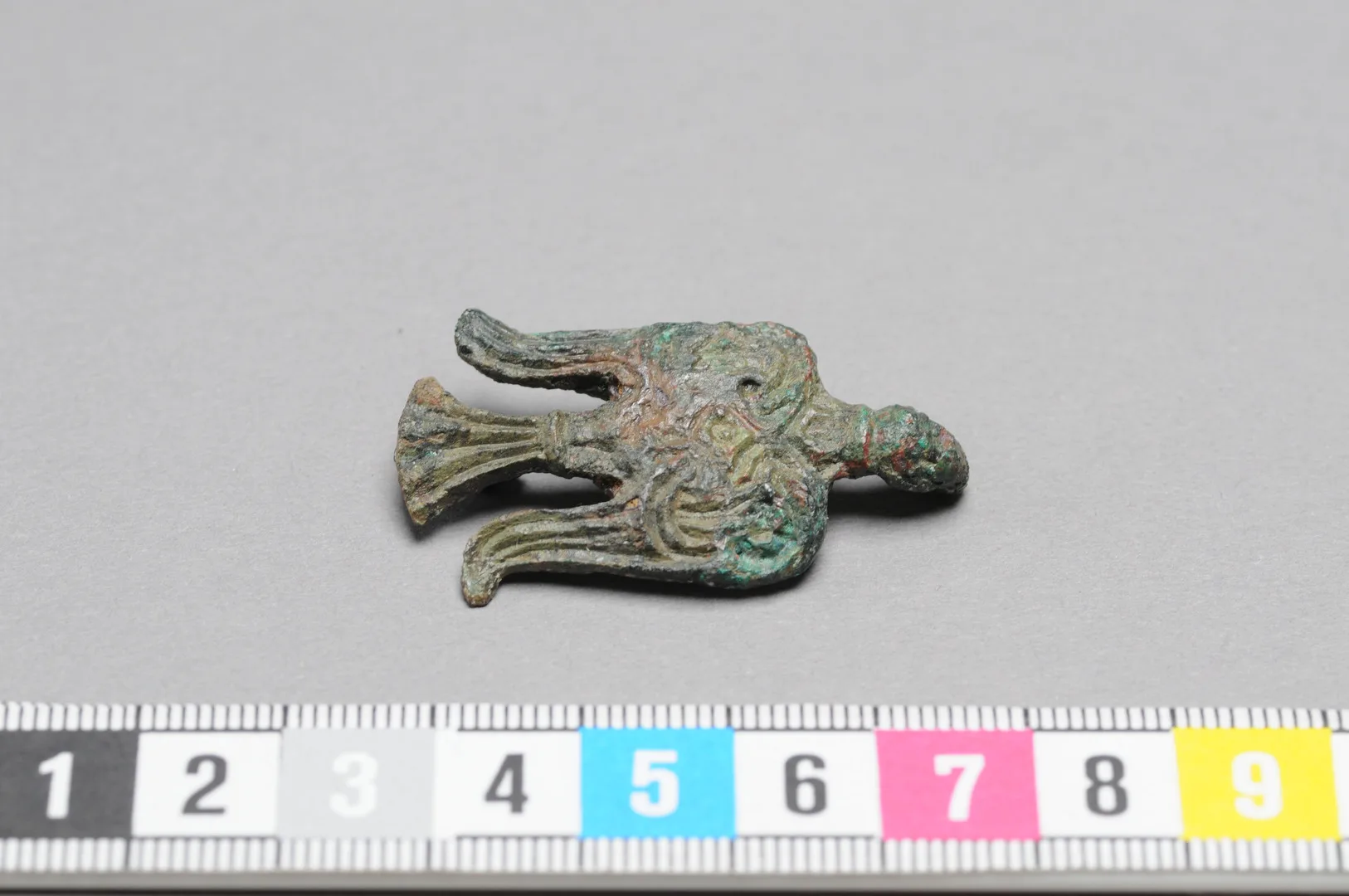
Bird clasp
From the Viking Age. Frigg could have worn a similar clasp to close her falcon cloak.
Odin’s wise wife
Though married to the god of wisdom, Frigg could outwit him, and they would sometimes wager on different matters. Odin often sought counsel from his wise wife, and although she did not practise divination, she possessed much knowledge of the future. Despite being the protector of marriage, Frigg was unfaithful to Odin on several occasions, including with his own brothers.
Frigg is often likened to Freyja, another powerful goddess in Norse mythology, and their roles are sometimes confused. Freyja is the goddess of love and sexuality, but also associated with fertility, beauty and passion. Both are strongly connected to love and relationships, but in different ways: Frigg represents the sanctity of marriage, while Freyja symbolises free love and sexual independence.
As queen of the gods, Frigg is surrounded by the company of women. Her handmaiden Fulla, with a golden band in her hair, tends Frigg’s clothing chest and all her shoes, and knows all of Frigg’s secrets. Among those in her service is also Gná, whom she can send out as a messenger. When Frigg wishes to grant someone protection, she sends instead the goddess Hlín – a name which Frigg herself is sometimes given.
The significance of Frigg today
Her name is connected to the Old Norse word fríja, meaning “to love”. It is from Frigg that we derive the name of Friday, once thought to be the best day for marriage.
She also holds an important place in popular culture, modern heathenism and Norse-inspired fantasy. As a goddess who both safeguards the home and bears secret knowledge of the future, Frigg occupies a unique position in mythology.
Facts about Frigg:
- Name: Frigg (also spelt Frigga)
- Parents: Fjörgynn (father sometimes mentioned; mother unknown)
- Siblings: No clear siblings are known in the sources
- Qualities: Wise, maternal, loving, far-seeing, reserved
- Symbolism: Marriage, motherhood, home and family, foreknowledge
- Resides: Fensalir in Asgard
